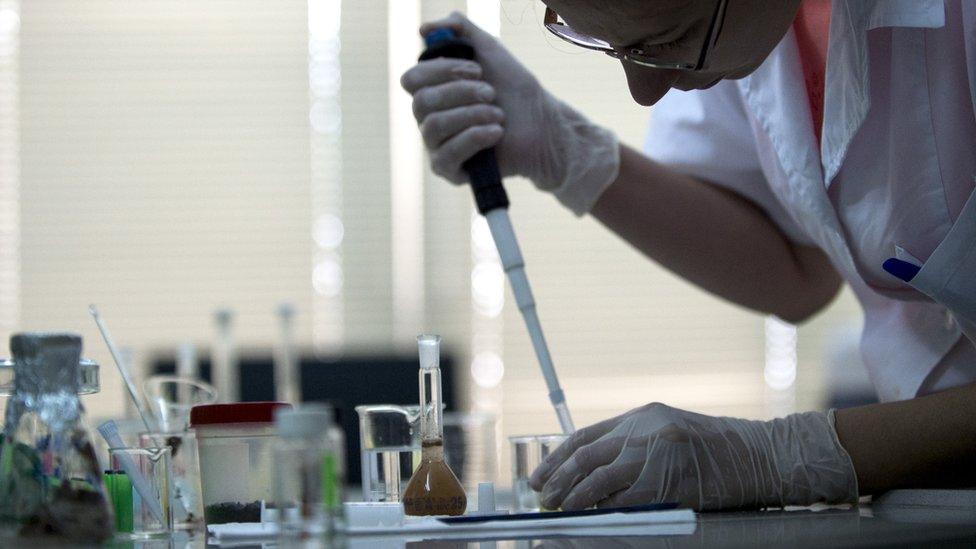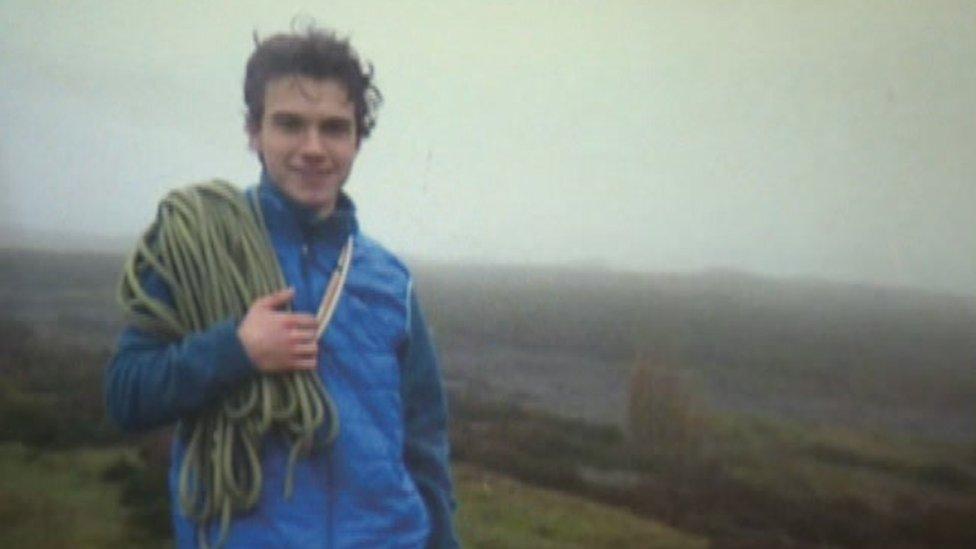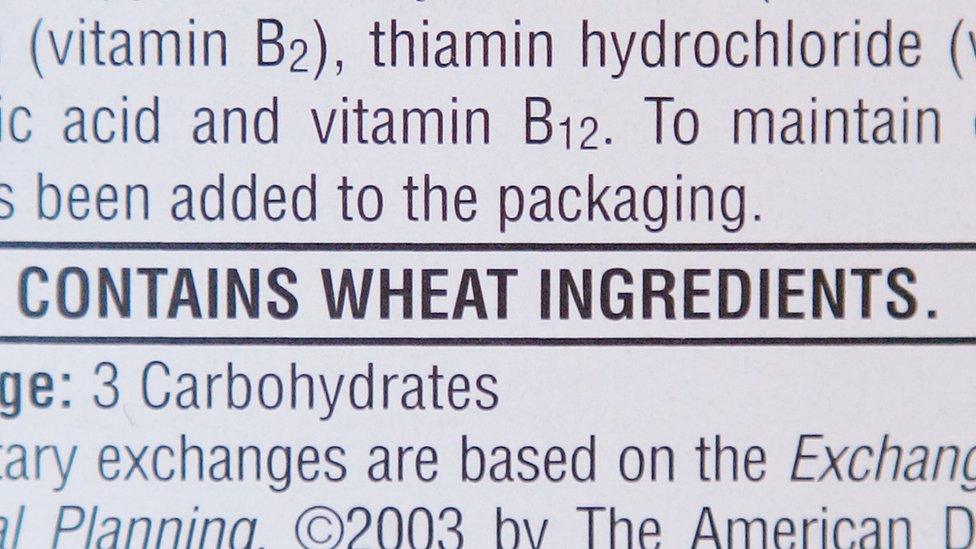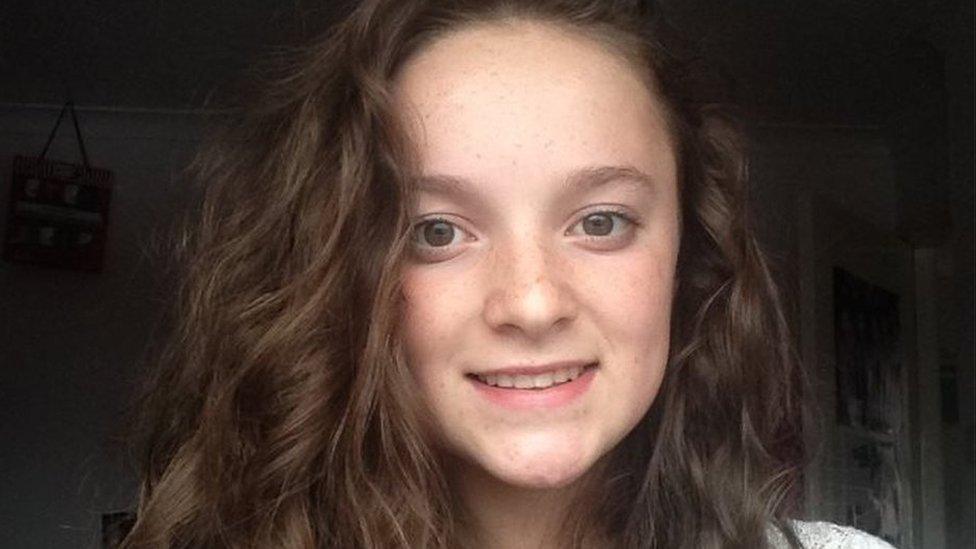Allergens found in quarter of sampled foods
- Published

The FSA said samples are taken following concerns that allergens were not being declared
Undeclared allergens were found in a quarter of food samples from UK businesses, figures have shown.
The Food Standards Agency (FSA) revealed 673 out of 2,862 tests since 2016 were "unsatisfactory".
It said many samples were taken because concerns had been raised, rather than at random.
The Nationwide Caterers Association said businesses took their responsibility to provide allergy advice seriously.
Products containing foods that can cause allergic reactions have to be declared by businesses, external, such as restaurants, takeaways, caterers and shops.
Samples were logged as "unsatisfactory" if allergens were found but not declared, either on the packaging or mentioned by staff.
'People can die from a tiny splash'

Owen Carey died in his girlfriend's arms at the foot of the London Eye
The family of Owen Carey, who died after eating out while on a day-trip to London to celebrate his 18th birthday, said the food sector needed to do more to provide allergy information.
Post-mortem tests confirmed Mr Carey, from Kent, suffered an anaphylactic reaction, and an an inquest is due to be heard at a later date.
His sister Emma Kosher said: "I think there's a lot of confusion between what is an allergy and what is an intolerance.
"Some people might think 'oh if there's a tiny splash of butter on their food, it's ok', but they don't realise how serious it is.
"People can die from a tiny splash of allergen on their food."

Megan Lee and Natasha Ednan-Laperouse were both 15 when they died after unknowingly eating food containing ingredients they were allergic to.
Also in 2017 15-year-old Megan Lee died after a takeaway curry she was given contained nuts and the restaurant bosses were jailed for manslaughter.
Natasha Ednan-Laperouse, 15, died in 2016 after eating a Pret a Manger baguette, which did not list the ingredients and contained sesame.
The FSA figures, obtained by the BBC through a Freedom of Information request, came from the Food Surveillance System (UKFSS) and show councils across the UK tested 2,862 food samples since 2016.
UKFSS is a voluntary database and not every authority is signed up.
The food watchdog said many councils take samples following tip offs from the public, which makes the proportion of failed results higher than they would be from random testing.
It follows an undercover BBC investigation which found leading restaurant and coffee shop chains are giving out incorrect allergy advice.
Cheshire West and Chester Council recorded 15 samples since 2016, 14 of them "unsatisfactory" due to traces of allergens not mentioned on the packaging or by staff.
In West Sussex, almost two thirds of those recorded, 13 out of 21, failed while in Essex, 35 out of 73 samples failed.
In contrast, only four out of 43 samples failed in Kent along with eight out of 87 in Hertfordshire.
Only one failed sample was recorded in Hull out of a total of 78.

Ingredients that can trigger allergic reactions have to be included on food labels
'Growing concerns'
Where samples are unsatisfactory, authorities must remove the food and issue a caution, or begin a prosecution.
Michael Jackson, FSA head of regulatory compliance, said due to "growing concerns" about regulation, a new model was being developed to include "a mix of inspections, intelligence and evidence from strategic surveillance."
Mark Laurie, director of the Nationwide Caterers Association, the UK trade association for mobile caterers and street food traders, said: "Too many businesses have seemed unaware of the risks posed to their customers by incorrect allergy information.
"The majority of food businesses take their legal responsibility to provide correct advice very seriously."
He said cuts in council funding had meant reduced support for small businesses and "fewer interventions by food safety teams who don't have the resources to educate, manage and enforce."
- Published28 November 2018

- Published7 November 2018

- Published4 October 2018

- Published23 September 2018

- Published23 October 2018

- Published23 May 2016
